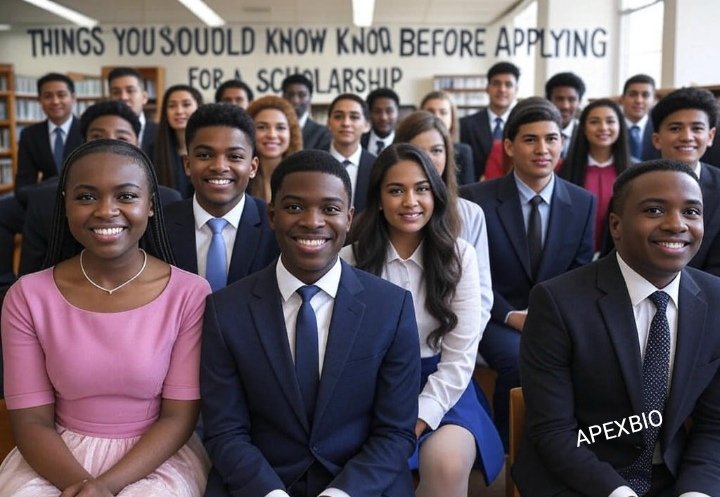You need more than grades to get scholarships: Things that might affect your chances of getting an international scholarships
Many students think a near-perfect GPA is the golden ticket to an international scholarship. But top scholarships look at the whole person, not just transcripts. They want future leaders, team-players, and responsible citizens. For example, Chevening explicitly says they select scholars based on leadership, relationship-building, and career vision – not just grades. The Mastercard Foundation likewise requires candidates to be strong academically and “have demonstrated a commitment to making a difference in the lives of others”. In short, scholarship committees expect a mix of academic excellence and real-world initiative.
It’s not only leadership and volunteerism on the checklist; personal conduct matters too. Many scholarships require you to disclose any criminal convictions or disciplinary issues. For instance, Fulbright rules explicitly bar anyone convicted of a felony or even certain misdemeanors because they must be sure your conduct meets their standards. Likewise, when you apply for a student visa (often needed after a scholarship is awarded), you have to report any convictions. UK immigration guidance makes it clear that “character, conduct or associations [including] criminal history” can be grounds for refusal. In practice, this means a serious police record (or lying about one) can immediately wreck your chances.
Given all this, it pays to build positive habits and a strong record before you even apply. Below are key lifestyle habits that boost your scholarship chances – think of these as pieces of your “scholarship profile”:
Bad online behaviour
Bad online behavior can also harm your application. A survey of scholarship providers found that nearly one-third have rescinded or denied awards based on what they discovered about applicants online. Committees often Google applicants to spot “red flags” or anything from hateful comments to evidence of illegal activity. On the flip side, they also note positive traits online: one study found screeners look for creativity, good judgment, and clear communication in social profiles. In other words, a tidy, professional online presence (for example a polished LinkedIn page) can only help.
JOIN US ON SOCIAL MEDIA
Twitter@apexbio24
Avoid getting into trouble with the law
Keep a clean record (legal and online). Avoid getting into trouble with the law or even campus discipline. Scholarships and visa officers will check, and crimes (especially felonies) usually disqualify you. Likewise, scrub your social media of offensive or illegal posts. Remember that providers do vet online: nearly a third say they’ve turned down applicants over something they found on Facebook, Twitter or Google. Instead, use your online profiles to highlight achievements and good character.
Volunteering
Volunteer and lead. Engaging in community service and student organizations shows you’re not just book-smart but also community-minded. Commit to at least one club or volunteer project: organizing a campus event, tutoring, or charity work, for example. It demonstrates initiative and empathy. Major scholarships explicitly look for this. For example, the Mastercard Foundation expects scholars to have “demonstrated a commitment to making a difference”, and Chevening values applicants who can “give back to [their] community” through volunteer activities. These experiences give you concrete stories to tell on applications and interviews.
Take leadership roles and stay curious
Whenever you have the chance, step up. Run for student council, captain a team, or lead a group project. Even a small leadership role (like organizing a club meeting or study group) counts. This shows the selectors you can influence others and take charge skills scholarship panels admire. Also pursue academic interests beyond the syllabus: get involved in research projects, science fairs, or conferences, or just explore topics you love. This intellectual curiosity signals you’re passionate and proactive.
Sharpen your communication skills.
Nearly every scholarship asks for essays and/or interviews. Strong writing and speaking are crucial. Practice telling your story clearly and confidently. In fact, reviewers often note communication skills as a positive trait when googling candidates. A well-written essay with a consistent, honest story can set you apart. Seek feedback on your writing and presentation skills now so you can shine in the selection rounds.
Cultivate a global mindset
International scholarships especially prize students who appreciate other cultures and global issues. Take any opportunity to travel, study abroad, or even just interact with students from other countries. Learn a foreign language if you can. Being able to talk about world affairs or explain how your experiences give you a global outlook makes you a stronger candidate. Programs like Erasmus and Fulbright look for applicants who can bridge cultures, so showing cultural awareness and open-mindedness is a big plus.
Get a personal brand
Beyond these habits, think of your personal brand. Keep a professional online presence (not just for avoiding scandals, but also for showcasing your story). A LinkedIn profile that highlights your volunteering, internships, and projects can catch a reviewer’s eye
in fact, about a quarter of scholarship committees use LinkedIn to vet applicants. Choose referees who genuinely know your work ethic and character (avoiding friends or family). When you write essays or go to interviews, make sure your narrative is consistent: your CV, personal statement, and reference letters should all reinforce the same strengths and goals.
Similar Posts on Scholarships
Fulbright Scholarship Programme | Fully funded by the United States Government
University of Paris-Saclay Scholarship | Fully funded | France
Eric Bleumink Scholarship | Full funding | University of Groningen, Netherlands
Bradford University Scholarship | Fully funded | UK
Chevening Scholarship | Fully funded | UK
Course that attract international scholarships
What to do when you get an international scholarship.
Types of international scholarships
Beijing Normal University Scholarship
University College Birmingham Vice Chancellor Scholarship
Final Remarks
Start early and be intentional. Don’t wait until the scholarship deadline looms to “add” volunteering or leadership build those experiences now, out of genuine interest. Your habits today become your credentials tomorrow. Treat every club you join, every community service hour, and every online post as part of your future scholarship application. With a clear record, solid experiences, and a positive presence, you’ll give yourself the best shot when opportunities arrive.






